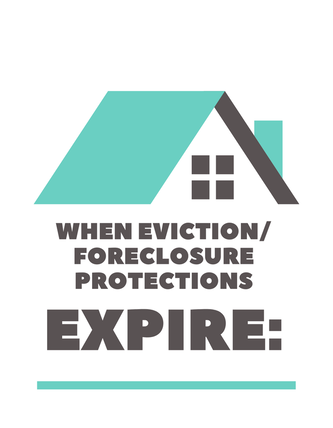 The fact that the real estate market thrived during 2020 while the global economy crumbled is well-documented. Analytics compiled by New Jersey Realtors® show the real estate market outperformed the 2019 year, despite a slump in activity in the spring presumably due to New Jersey lockdown restrictions.[1] The data also shows a reduction in listings, meaning the supply of available property was less this year than last. Many real estate professionals were caught off guard with the sudden influx of activity. News headlines showed record breaking numbers of Americans filing for unemployment. Businesses were forced to close. Some temporarily. Some for good. Many businesses could, and are still, only operating at partial capacity to ensure patron and employee safety, and to allow proper compliance with CDC cleaning protocols. How did the real estate industry manage to emerge from the global economic downturn unscathed? It all started with immediate action from Congress. Shocking, I know! Eviction moratoriums were put in place in the early spring when the pandemic was finally recognized as a threat by the United States. The CDC enacted similar protections. Congress also enacted a temporary freeze on foreclosures and mortgage forbearance. Then, the Federal Reserve lowered rates to 0% to 0.25%, an attempt to protect the home buying market. This resulted in a decrease in mortgage rates. Fixed mortgage rates dropped below 3% causing a rush of home buying and refinancing and making it the lowest mortgage rate on record. The realties of lockdown also fueled real estate market trends. Many people became remote workers, operating out of make-shift home offices. Forced with the realization they will be spending more time at home (with their spouses and children) than ever before, many left small apartments in big cities for larger properties in the suburbs. Properties that often come with outdoor space. Purchasers requested properties with home offices, gym, and other “flex rooms”. It’s not difficult to make the logical conclusion these requests are in direct response to the new normal of pandemic life.[2] Metropolitan areas around the country are experiencing a quite different reality. New York City is enduring an unprecedented fall in residential real estate. Between the month of March through November, rents in Manhattan dropped 12.7%, exceeding the biggest price drop during the Great Recession.[3] But what is going to happen when the multitude of state and federal eviction and foreclosure protections are eventually lifted? I believe the market’s low inventory is related in part to these protections. Landlords voiced opposition to the moratoriums, labeling them as an “unlawful taking” in court, sometimes successfully circumventing eviction protections.[4] When the protections expire, these vacant properties will immediately hit a market with hungry buyers starving for supply, and there will be an influx in bargain-basement real estate purchasing, for those who can afford it.
0 Comments
Leave a Reply. |
Details
Contributors:Stephanie Hunnell, Esq. , Ryan Westerman, Esq. and Caitlin Holland, Esq. Archives
April 2024
Categories
All
|
|
Hunnell Law Group, LLC is conveniently located at 908 Main Street., Asbury Park, NJ 07712
You can contact us at 732-749-3500 or by facsimile at 732-749-3503 Attorneys serving Asbury Park, Avon-by-the-Sea, Belmar, Manasquan, Bradley Beach, Freehold, Toms River, Fair Haven, Red Bank, Manalapan, Marlboro, New Brunswick, Jackson Township, Brick, Howell, Asbury Park, Ocean Township, Eatontown, Wall Township, Neptune City, Neptune Township, Spring Lake, Wanamassa, Lake Como,
Monmouth County, Ocean County, Middlesex County, and Mercer County, in Central New Jersey. |
© 2019, 2020, 2021, 2022, 2023 Hunnell Law Group, LLC, all rights reserved. Disclaimer & Site Map & Privacy Policy.
No aspect of this advertisement has been approved by the Supreme Court of New Jersey.

 RSS Feed
RSS Feed